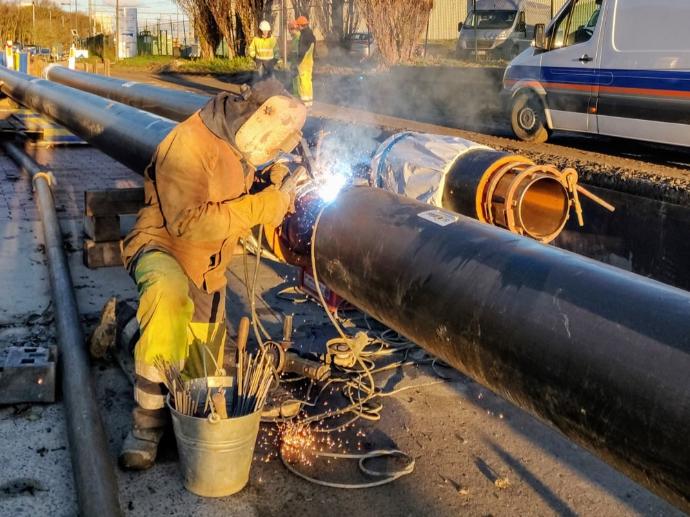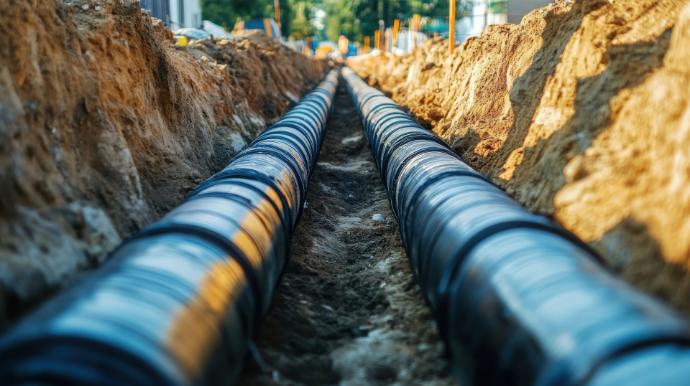4 pilot cities
RODEO has four cities which are developing District Heating and Cooling. We want to create a shared context and a common basis for each of the pilots. Such a shared context highlights the commonalities between them and makes it easier to draw conclusions on the validity of the participative business models deployed in each of them.
Our partner Hanze university will provide relevant scientific expertise to the pilot projects through the expert group. Endeavour will collaborate closely with Hanze University on the stakeholder management and citizen participation aspects of the project.
Exceedence will adapt the developed financial architecture to the local circumstances for each of the four pilot cities.
Pilot City Dunkerque (FR)
The focus of the pilot in Dunkerque is the Glacis eco-district.
This district consists of apartment buildings managed by the social landlord Partenord Habitat, who is currently carrying out a major refurbishment operation.
Connecting the buildings to Dunkirk's district heating network is a prerequisite and is at the heart of the project. As rising energy costs (electricity and gas) impact our tenants, who are already in a precarious financial situation, we have chosen a heating method that is both environmentally friendly and affordable for the tenants.
Engaging with residents is essential. The district has been connected to the district heating system for a long time and all apartments have been equipped with individual meters. Many inhabitants do not understand how they function and the relationship between the meter readings and the heating bills they receive. This leads to frustration and makes it difficult to induce people to use energy more efficiently, save money and reduce emissions.
Improving the system of monthly instalments and a single annual charge for the difference together with the heating network manager is also crucial.

Pilot city Ostend (BE)
Ostend has the ambition of making the city centre fossil-free by 2050.
The heat transition policy plan identifies the city centre as perfectly suited for the further roll-out of the heat grid given its high density of multifamily buildings and heat demand of heritage buildings. We want to cocreate a financial model with the grid operator (Beauvent) and key actors as the citizens, ensuring that it allows the heat grid to reach all households, including the vulnerable ones.
The pilot will also be an important component of the neighbourhood improvement contract (start-up 2024) for a carbon-free and climate-proof city centre, a commitment taken up with the Flemish government within the Local Energy and Climate Pact (2030).

Pilot city Assen (NL)
The northern Dutch town of Assen is moving away from gas now domestic production has ceased. Heatnets are a pillar in this strategy.
Assen will develop its DHC from scratch, and needs to roll it out to individual households from the outset (from 400 social housing to 2500 private dwellings). Assen is developing an affordable DHC network, run by a municipal heat company in which residents have direct influence on pricing and governance. This is a learning experience from a Danish model, Ramses.

Pilot city Dublin (IE)
Dublin aims to wean itself off gas by expanding its DHC system beyond public buildings. South Dublin County Council (SDCC) has been at the forefront of recent DHC activity in Ireland, by developing the Tallaght District Heating Scheme, Ireland's first large-scale low-carbon district heating network.
A key component is the inclusion of residential customers. Their participation is crucial for diversifying the current mix of public customers connected to the District Heating system in Tallaght.
High-density residential buildings, such as new apartment blocks, are the most efficient and costeffective for District Heating networks. However, old buildings, particularly old apartment blocks, might require investments in retrofitting of the internal systems but can provide stable demand for the heat grid and long-term benefits (such as improved energy efficiency, cost savings, and increased property
value). Individual houses will be considered as part of analysis and the overall assessment during the project implementation as they pose the greatest challenge due to their lower density and higher infrastructure costs, but strategic approaches and incentives could improve their viability.
CODEMA is committed to leading Dublin's low-carbon transition to 2030 & 2050, providing a wide range of energy and climate mitigation services to the 4 Dublin Local Authorities and other regional stakeholders. CODEMA supports each council in leading and influencing the low-carbon transition by improving their energy efficiency, incorporating renewable energy technologies and reducing their
greenhouse gas emissions.

